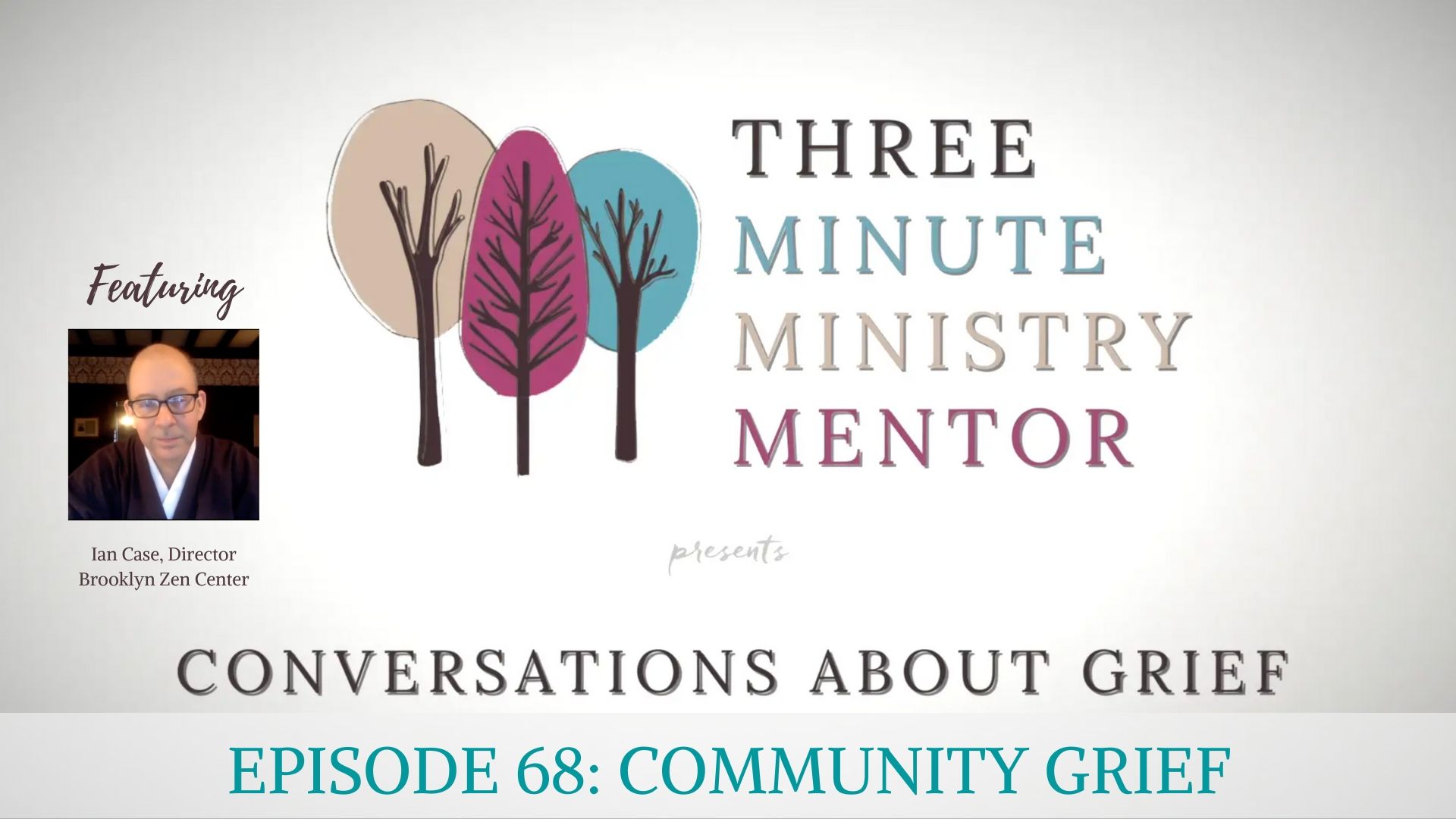“So much of Zen practice is about warm hand to warm hand transmission.” Ian Case who is the Director of the Brooklyn Zen Center is our guest this week on Three Minute Ministry Mentor. Ian will also be graduating from Union Theological Seminary this week!
When the “stay at home orders” were issued in early March, Ian and the entire BZC community, like religious communities of all kinds, began adjusting to a different reality. Now that warm hands are limited in their reach, the community is trying out new ways of gathering virtually. They are also learning as a community to cope with their grief.
With the “stripping away of ritual and form” members of the Zen Center now meet for Dharma talks (educational teaching), services of meditation, and practice groups in online platforms. Many members are also finding ways to “bring the temple into their own home.”
The community is experiencing some “lovely and surprising” side effects of the move to a virtual community. Listen to our conversation about establishing community intimacy, the importance of community agreements, and coping with community grief.
Impermanence is one of the hallmarks of a Zen Buddhist practice. Yet in this moment, Ian says, “the fragility and preciousness of life” are immediate, and “impermanence is no longer hypothetical.”
“The walls have closed in on my appreciation of impermanence,” says Ian, “and it has amplified our sense of care for one another.”
In our conversation, Ian mentions a sub-group at BZC that focuses on “Undoing Whiteness and Oppression.” This work is especially important given the ongoing health disparities in communities of color which are impacting an elevated death rate from Covid-19 among people of color in the U.S.
The BZC group works to raise consciousness and make social change, bearing witness to the deep work still needed for those of use who identify as white. Given this week’s outcry over the racism that allows two white men in south Georgia to go unprosecuted for more than two months in the murder case of 25-year-old, Ahmaud Arbery, every predominantly white religious community in this country could follow suit.
Does your church, synagogue or religious community have a similar group? I would love to hear more about it!
Death, Dying and Bereavement Class
This week’s episode is the second in a series of Conversations about Grief, which I’m sharing in May and June. This pandemic time, with all its ongoing uncertainty, puts grief “everywhere we turn our attention.” Thus, my hope for these conversations is that they will be supportive to you in navigating the world at this moment.
Interviews about grief are also an opportunity to experience some of the overflow of learning moments from my course on Death, Dying and Bereavement this spring at Union Theological Seminary in the City of New York. I’m grateful for the school’s support of guests in this special “Conversations about Grief” series. Each person that I interviewed in this series agreed to share the conversations with the 3MMM community as well as the class.
We want to know more about how you are finding ways to tend to your grief individually and communally. Please share your rituals for grieving in isolation with us here.




